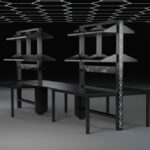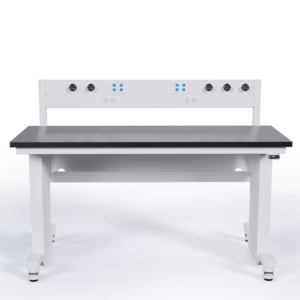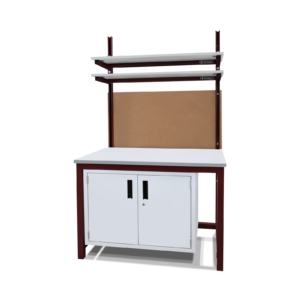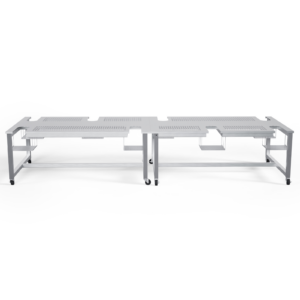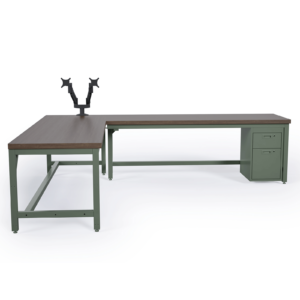Step Aside Coffeeshop, Modern Libraries are Becoming a New Favorite for Hybrid and Remote Workers
Are you suffering from work-from-home fatigue when you are away from the office?
Modern public libraries may be the solution you’ve been looking for.
The OG study spaces at public libraries are having their day in the sun, offering a more productive work environment than hanging out in a coffee shop and a cheaper alternative to paid co-working spaces.
In this Formaspace Contract report, we’ll look at what modern public libraries offer, including some of the shortcomings and pitfalls. We’ll also look at how outspoken critics are putting the future of libraries at risk and what you can do to support your local public library.
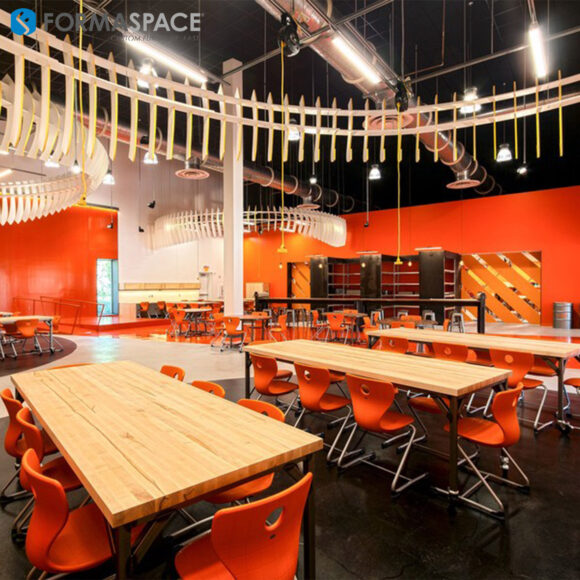
What Benefits do Modern Libraries offer Remote and Hybrid Workers?
· Productive Working Environment
Savvy public library administrators are tapping into a new market, attracting the emerging class of self-employed or remote work professionals looking for a “third” space that offers a quiet, productive work environment.
The attraction for remote and hybrid workers is they can feel less socially isolated compared to working at home while feeding off the energy of others working hard in close proximity.
In many cases, library spaces are being reconfigured to provide additional work areas, such as semi-private carrels, as well as open work environments with shared tables – including access to convenient power outlets.
Where possible, library administrators are adapting floor space layouts to separate children’s learning areas, which can be noisy, from “adult” work environments.
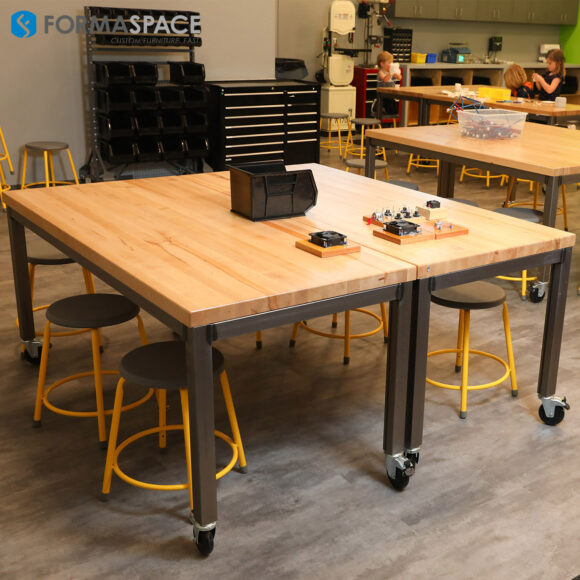
· Free Access to Multiple Public Libraries
The facilities available to professional workers in bigger public library systems offer many of the same advantages as for-profit co-working spaces – without the monthly membership fees.
And, in a strategy used by patrons of many co-working spaces, remote and hybrid workers are also taking advantage of using multiple public library locations – with on-the-go workers even joining different library systems in different cities to accommodate their travel schedules.
College and university libraries are also highly prized for their quiet, study-oriented work environments; however, many of these institutions limit access to faculty, staff, and students. But if you are an alum, volunteer, or donor associated with the school, you get the perk of accessing the campus libraries.
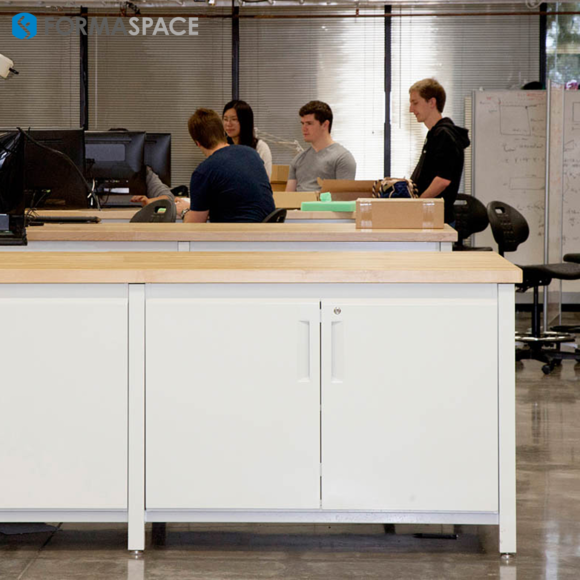
· Book Ahead Options for Collaborative Working Spaces and Conference Rooms
One of the misconceptions about modern public libraries is the assumption that it’s not a good place for collaborating on projects or making Zoom video calls.
That’s no longer the case, as many public library administrators have adapted their facilities to provide additional small group work rooms, as well as opening up conference rooms and large meeting rooms for group work projects.
Some facilities have even created “Zoom rooms” to facilitate video conference calls.
Many of these facilities have become very popular, leading to some public libraries having to expand their “book ahead” scheduling systems to allow online self-service appointment scheduling for group meeting areas and the like.

· A Place to Catch a Break from Summer’s Intense Heat
In light of this summer’s record-breaking heat waves, finding a cool place to work is more important than ever.
The idea of working outside on a notebook computer under the shade of a big tree isn’t at all appealing when the heat index jumps into the triple digits and beyond.
Fortunately, public libraries offer a cool respite from dangerous heat, not only for professional workers but also those without a functioning home AC system.
Indeed, this summer, cities such as Houston and Phoenix have implemented weeks-long heat emergency plans to create “cooling centers” located within public facilities, such as community centers, parks and recreation buildings, and public libraries.

· Access to Free Wi-Fi and Computers Pre-Loaded with Professional Software Helps Bridge the Digital Divide
Depending on their home location and personal economic circumstances, many individuals lack easy access to high-speed internet and/or computers kitted out with professional software.
Public library administrators are keen to help close what’s commonly called “the digital divide” – with many libraries offering free public Wi-Fi that’s not only available inside the building but in surrounding parking lots as well. In some cases, libraries have revived the “bookmobile” concept to provide mobile Wi-Fi access points to rural locations.
Additionally, many libraries not only offer access to computers loaded with professional software on-site, but some also allow lower-income households the opportunity to “check out” computer equipment for use in the home.
More than just a Place to Study and Work – Libraries Offer Makerspaces and other Important Amenities for the Community
In recent years, librarians have responded to changing circumstances, including the ability to access materials online, by adapting their available offerings as part of their continuing mission to serve their local communities.
· Serving as a Gateway to Online Resources
One naïve criticism of modern libraries goes like this – if everything is available online, why do you even need a school or public library – why not just use Amazon?
The reality is this: the proliferation of online research and information sources makes the usefulness of libraries MORE important than ever.
Librarians have the specialized training and knowledge to steer patrons toward useful sources of information, the ability to conduct effective search queries on non-user-friendly research databases, and in many cases, provide free access to thousands of dollars of valuable publications and journals that sit behind a paywall.
· Makerspaces are Now Commonplace in Many Public and School Libraries
If you are a regular reader of Formaspace reports, you won’t be surprised to learn that many public and school libraries have added makerspace facilities to provide students and the public access to specialized systems, including 3D printers, laser cutters, sewing and quilting machines, and large scale printers.
· A Place to Start New Companies, with One-Stop Access to Business Research, Regulations, and Documents
We often think of business accelerators and start-up hubs as the go-to place for entrepreneurs.
Increasingly, public libraries are also offering compelling resources for budding entrepreneurs by providing a place to work, collaborate, or build projects, along with providing access to current business information, including current government regulations and applicable forms required to start a new business.
· Public Libraries are also Job Centers
If you are looking for a new position, or you are an employer searching for an employee, public library staff can offer access to many employment resources, from job market research, resume writing skills, and relevant employee/employer job listings.
· The Social Side of Public Libraries: New Cafes, Art Galleries, Book Clubs, Local Museums, and Community Engagement Programs
Public library administrators have been very attentive to the needs of their patrons and the wider community.
Many modern public libraries have expanded to include new amenities that were unheard of in the past, including on-site quick-serve cafes with coffee bars, multi-purpose rooms that host art gallery openings, and adjoining local museum facilities.
Librarians are also seeking new ways to engage their local communities by hosting community events, public forums, and local community book clubs.
A Clean, Well-Lighted Place that is Open to All Walks of Life
Despite singing the praises of public libraries, all is not well in all cases.
Nearly a decade ago, the San Francisco literary landmark, A Clean Well-Lighted Place for Books, closed for the last time. The bookstore, which took its name from Hemmingway’s 1933 story A Clean, Well-Lighted Place, was famous for hosting literary conversations with prominent authors on public radio.
We bring up the Hemmingway story, which is a poignant sketch of an elderly patron who regularly patronizes a café where his overindulgence of the drink is well known by the attending waiters, who debate over how to handle this awkward social situation.
As problems in society increase, from homeless to public drunkenness, drug use, and mental illness, these issues are becoming front-line problems for librarians serving the community.
Unfortunately, given the diminished level of public services in recent years, many localities lack a safety net to intervene when necessary, causing many public libraries to become the last refuge for troubled individuals. In some cases, librarians have been thrust into the role of a public peace office or an emergency first responder, with some libraries even training staff to administer naloxone injections to reverse life-threatening opioid poisonings.
Libraries Meet Controversies in the Culture Wars
But if problems with troublesome patrons were not enough, many librarians are also facing threats from those fired up by the so-called culture wars.
Many of these individuals see it as their cause to ban certain books, pass laws that criminalize librarians for providing access to materials they do not approve of, and in many cases, hurl invectives and make threats of violence to librarian administrators and staff.
Where does this start, and where does it end?
Perhaps one place to start reflecting on this issue is to look back to the early Reformation when in 1520, Pope Leo X decreed that all of Martin Luther’s “heretical” books were to be publicly burned.
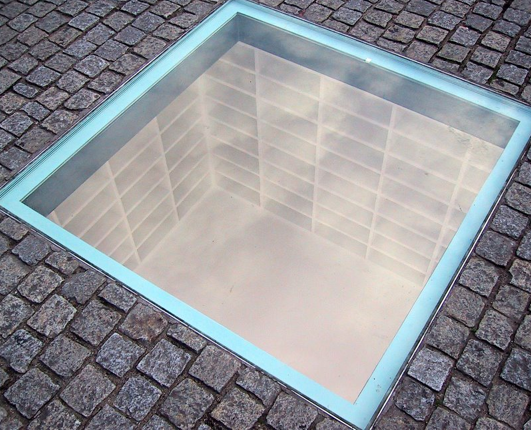
In the twentieth century, the radical Italian Futurist movement spearheaded by Filippo Tommaso Marinetti (1876-1944) called for the mass destruction of libraries and cultural institutions, including all of Italy’s renowned art museums. The Futurists effectively merged with the Fascists, led by Mussolini. Some historians argue that Mussolini’s radical policies inspired Adolf Hitler’s politics, including the infamous May 10, 1933, mass book burning that took place in the Bebelplatz in central Berlin.
Public and School Libraries Under Threat
The threat to freedom of speech and libraries and librarians has become very real in the past couple of years. Several southern states have threatened legal action against libraries for carrying “pornographic or indecent material” or hosting “Drag Story Hours” hosted by drag queens. Other libraries have seen local protests calling for defunding libraries or banning books from public or school libraries.
Here are a couple of the recent active cases:
· Arkansas Law to Criminally Prosecute Book Sellers and Librarians
Gov. Sarah Huckabee Sanders signed a law to go into effect August 1, 2023, that would prosecute libraries and booksellers with criminal charges for carrying titles that are “harmful” to minors. A federal judge has temporarily blocked the implementation of the law with a preliminary injunction.
· Divine Retribution: The Holy Bible Gets Banned in Utah
Activists in Utah promoted a new state law that was passed in 2022 that banned “pornographic or indecent” books from school libraries. Free speech advocates successfully argued that the Bible should be banned under the new law due to its content containing vulgarity or violence. The law was later revised to create an exemption that “un-banned” the Bible.
· The State of Texas is Turning Houston K-12 School Libraries into Detention Centers
In a controversial March 2023 move, the Texas Education Agency (TEA) took control over the state’s largest school district, Houston Independent School District (HISD), which is the 8th largest in the US.
In 2021, the HISD system had 276 schools teaching nearly 200,000 students but only 58 librarians.
The new TEA-installed superintendent Mike Miles has created a national controversy, announcing that he would eliminate librarians at 28 school campuses and turn the libraries into detention centers.
In other cases, public backlash campaigns have been successful in reversing some of these actions.
· Defunded Jamestown, Michigan Library Reopened with Donations
A small town in Michigan voted to shut down its local library entirely (by blocking funding sources) rather than allow it to display a selection of books by LBGT+ authors. This created national outrage and led to a successful funding campaign to reopen the library, capped by a $50k donation by romance novelist Nora Roberts.
· San Diego Activists Check Out LGBT+ Books to Prevent Access
Peñasquitos residents Amy Vance and Martha Martin announced that they had checked out all the available LGBT+ books at their local northern San Diego County public library to prevent others from accessing them. News of this action led to San Diegans donating over $15,000 to the library system to replace the books.
· Llano County Library System in Texas
In a nationally scrutinized vote, the Llano County Texas commissioners reversed their position and allowed library books to remain on the shelves that had been identified as “pornographic filth” by resident activist Bonnie Wallace.
How You Can Help Support Libraries in Your Community
If you believe in the importance of public and school libraries, you need to act.
Here are ten ways you can help support your local library.
- Join your Local Friend of the Library Group
- Volunteer at your local library
- If you have a skill that could benefit others, consider teaching a class at the library
- Support libraries financially. Buy books at library sales and donate your old books.
- Report cases of book censorship to the American Library Association (ALA)
- When you need help or a book recommendation, don’t hesitate to ask your friendly local librarian.
- Advocate for the library in your local government. Ask your neighbors to join in. Speak out in favor of freedom of speech.
- Participate in a local book club.
- Become an active library user: participate in library activities, borrow books, and use the makerspace.
- Tell others about your positive library experiences on social media.
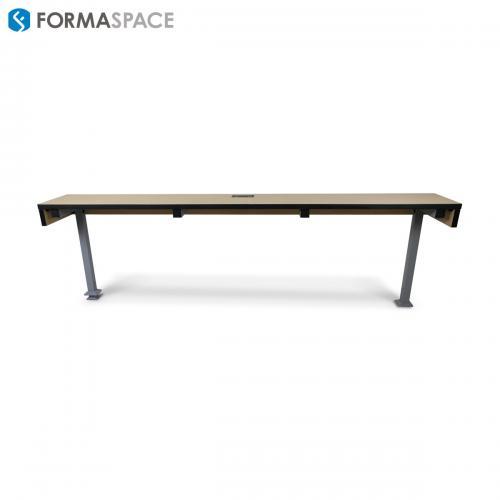
Formaspace is Your Library and Makerspace Partner
If you can imagine it, we can build it, here at our Formaspace factory headquarters.
Talk to your Formaspace Design Consultant today about how we can work together to make your next construction or renovation project a complete success.




